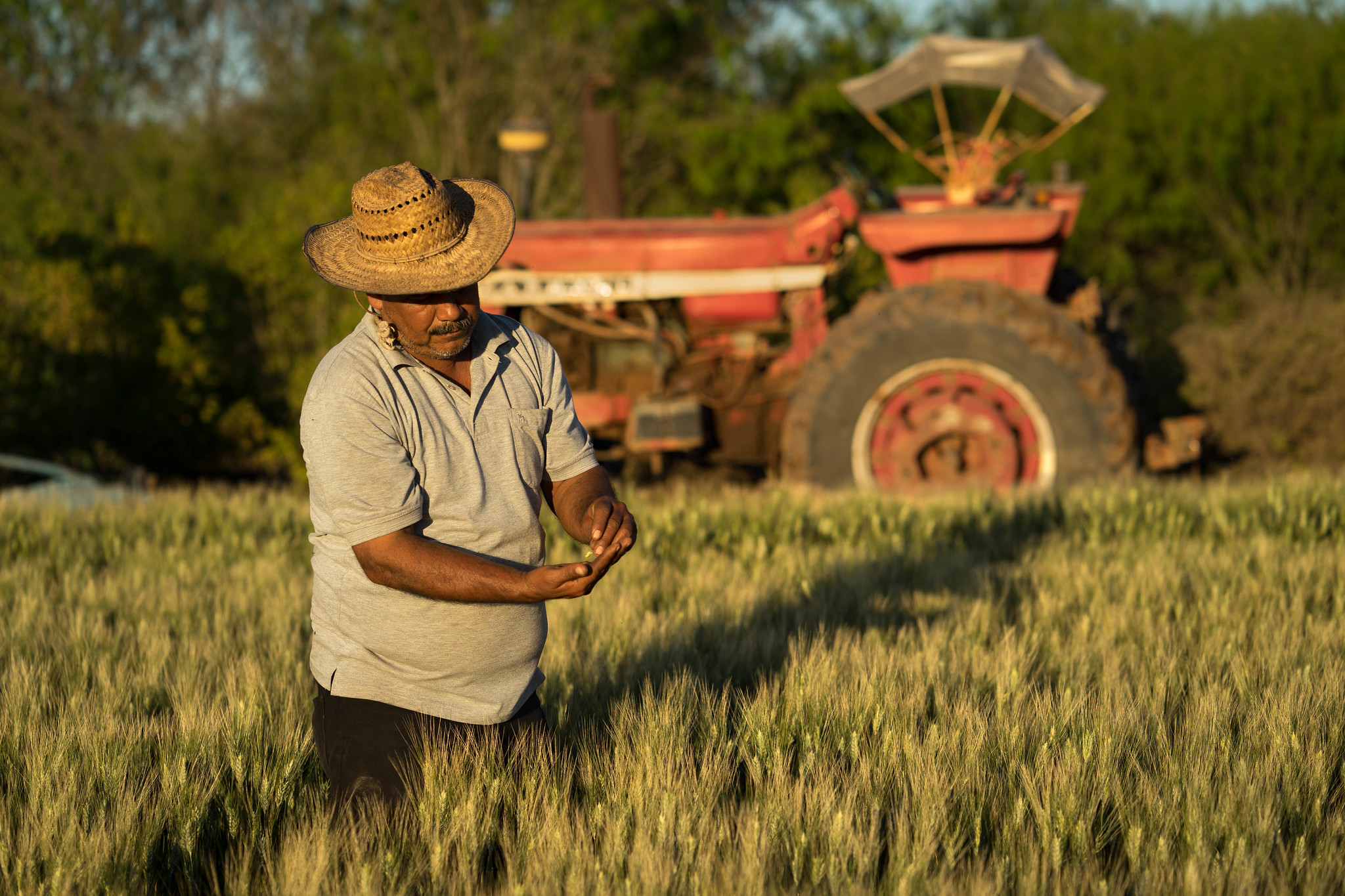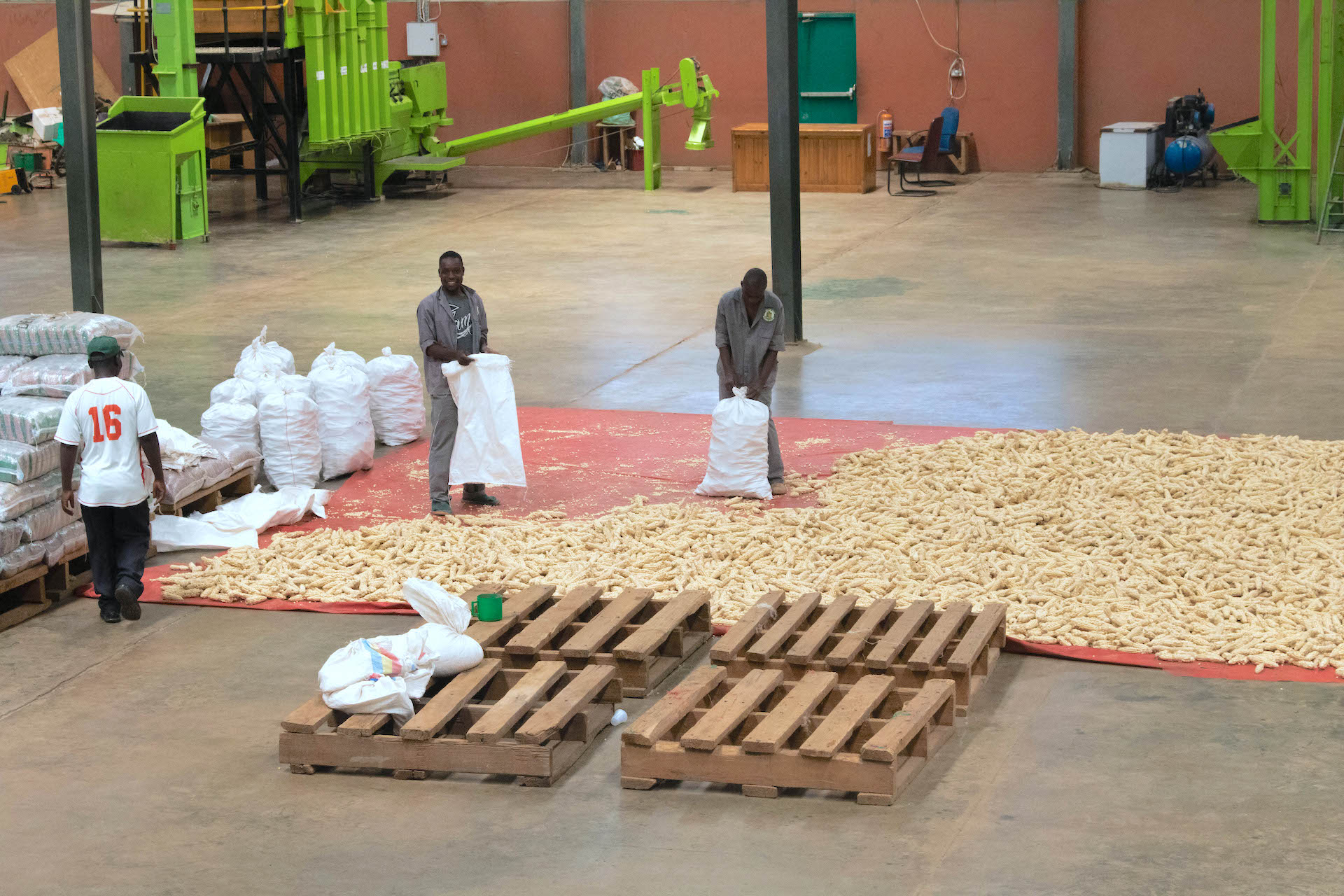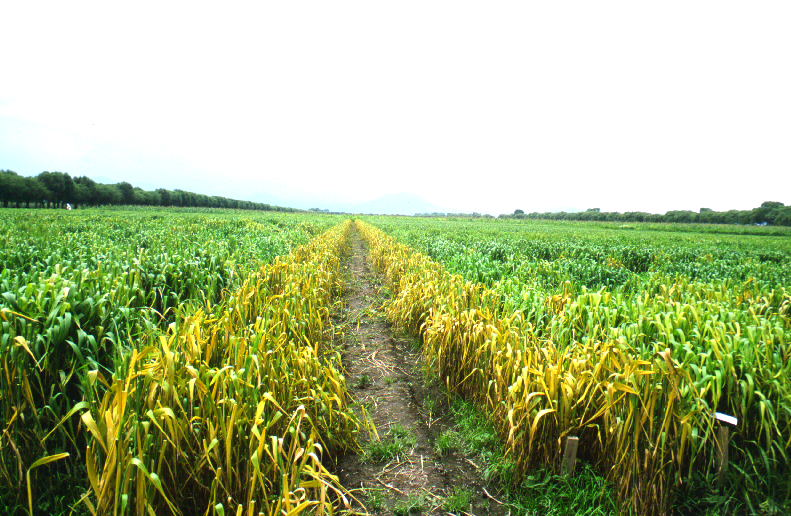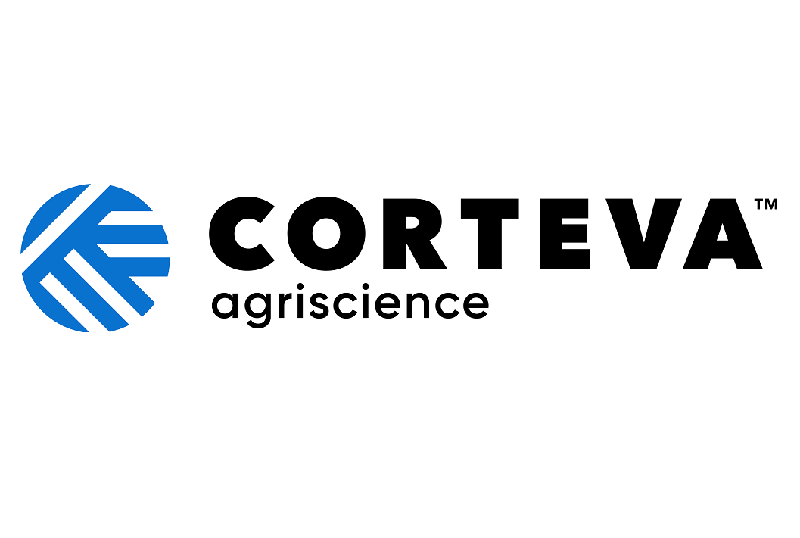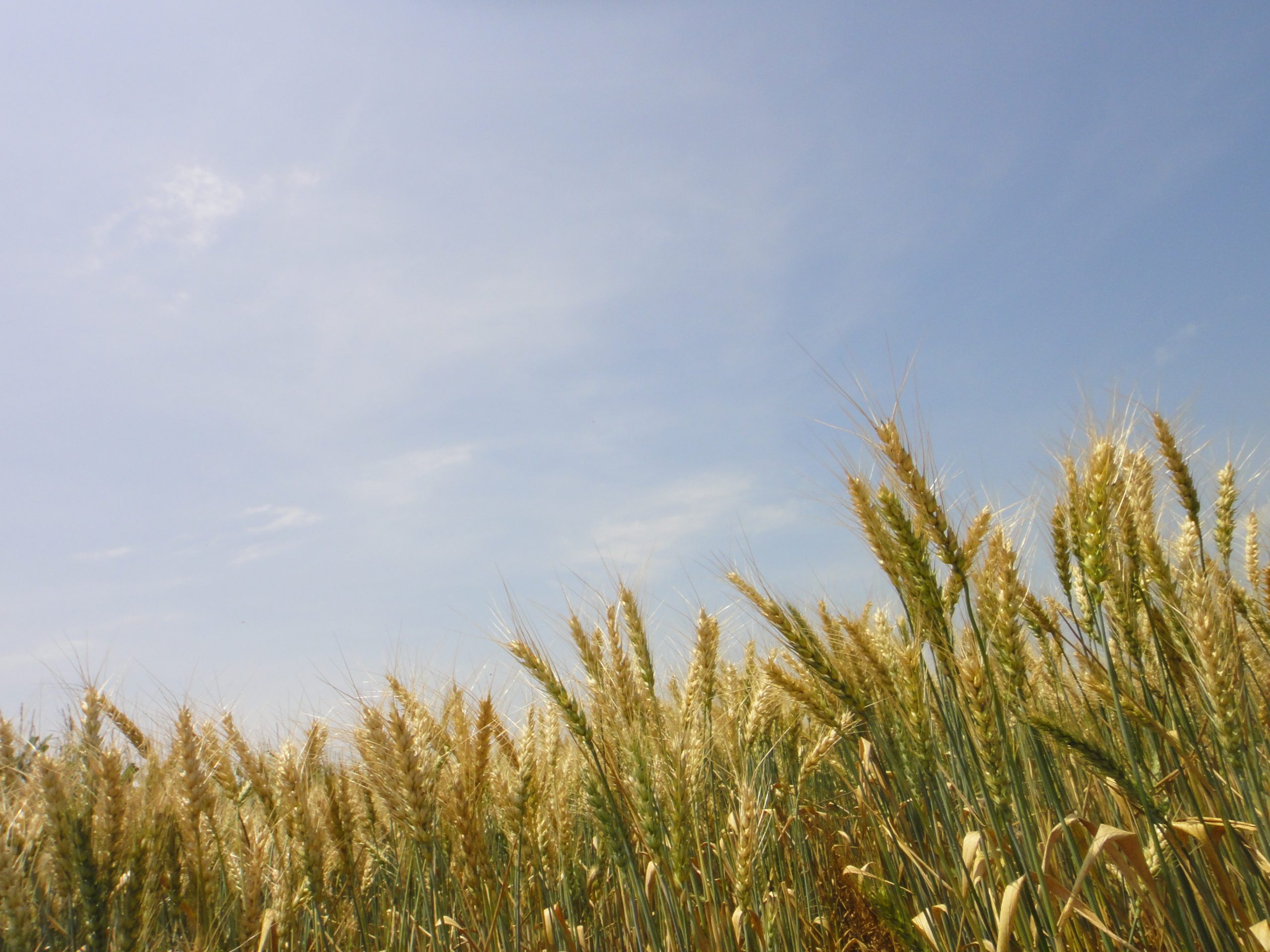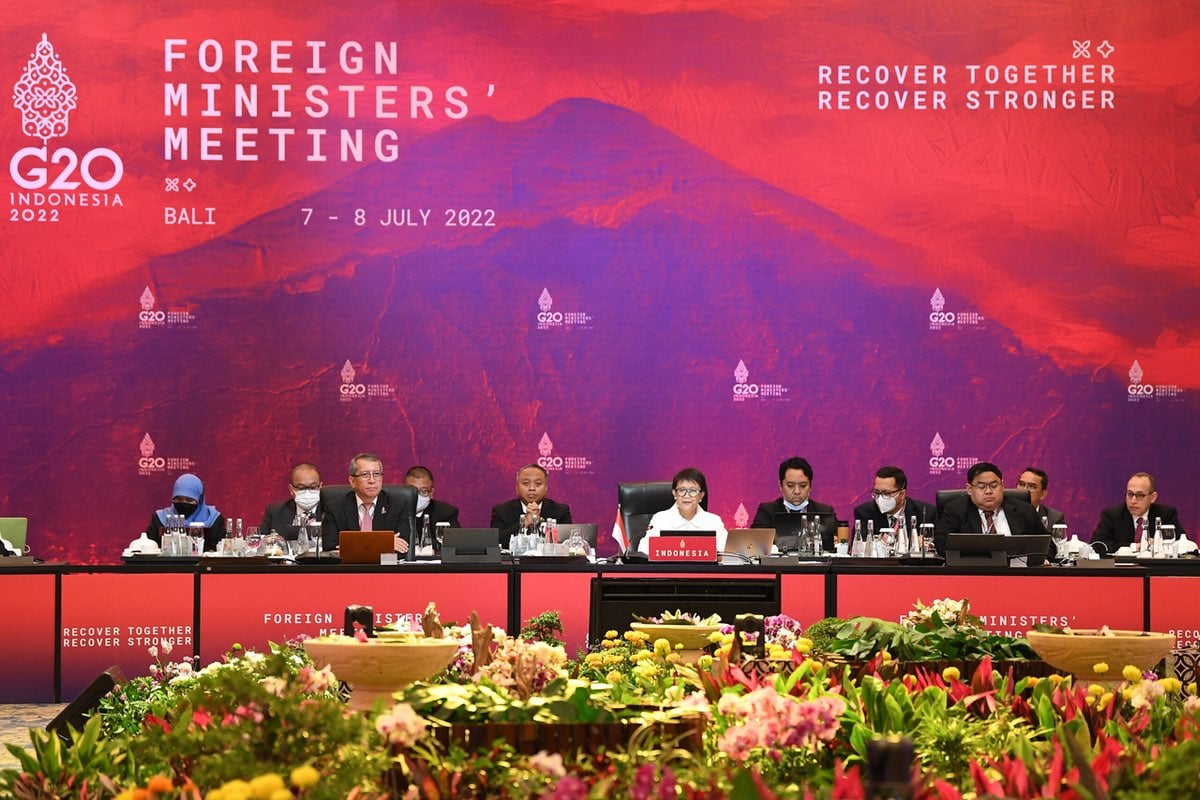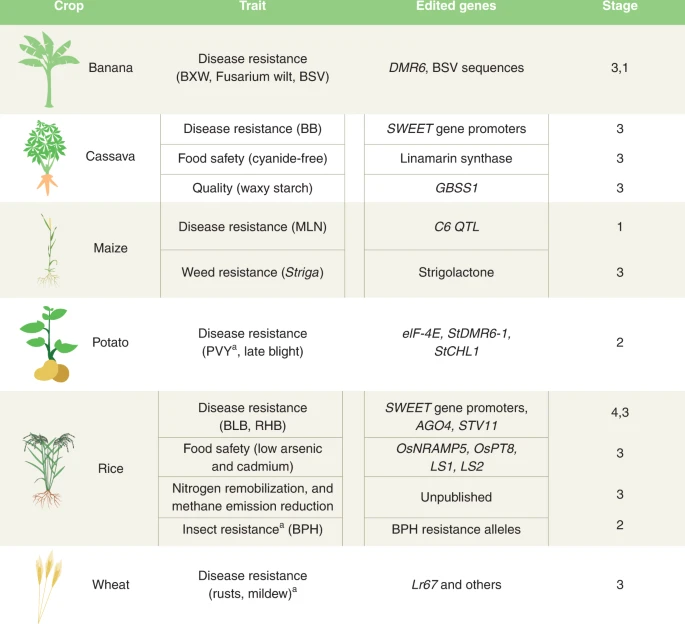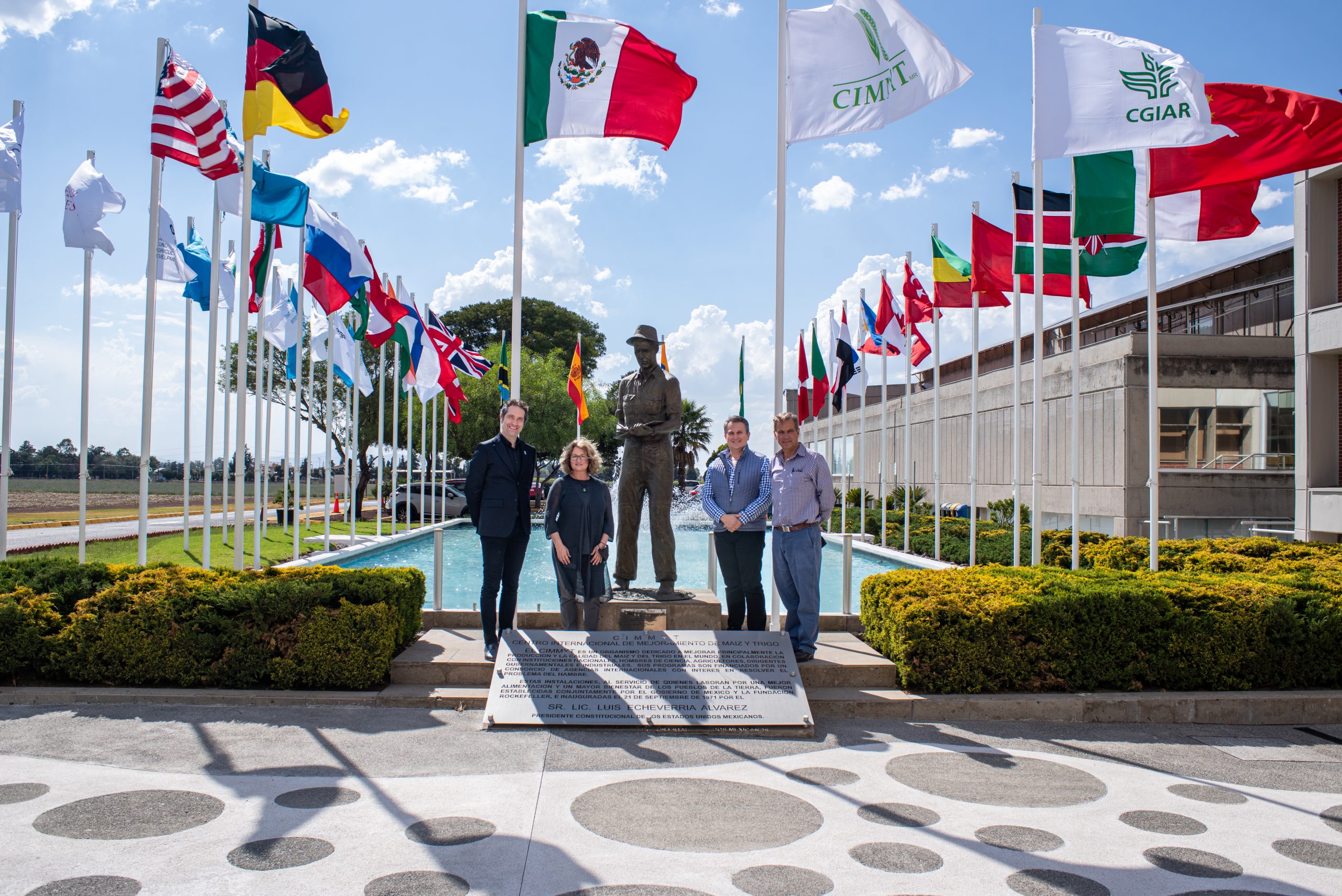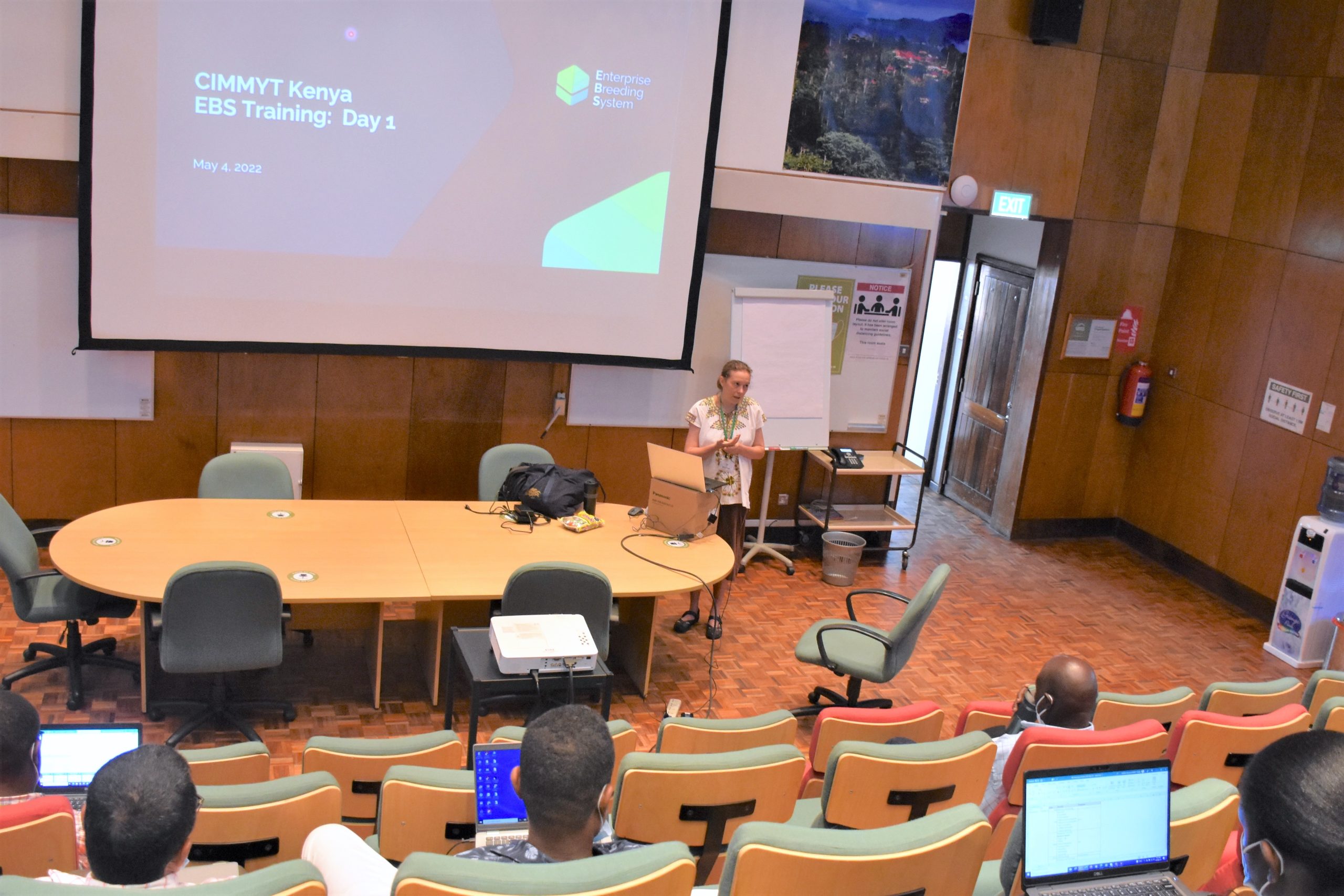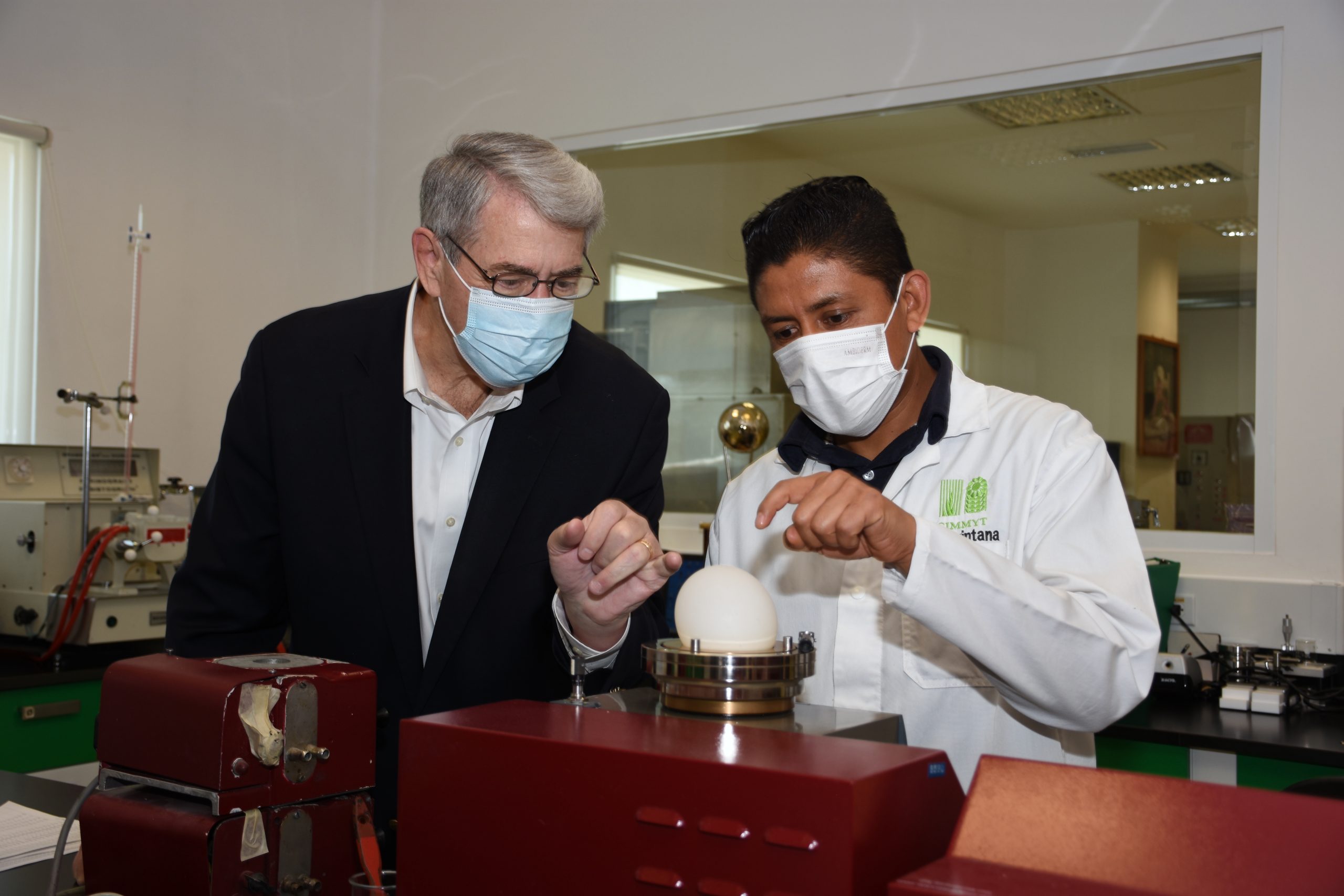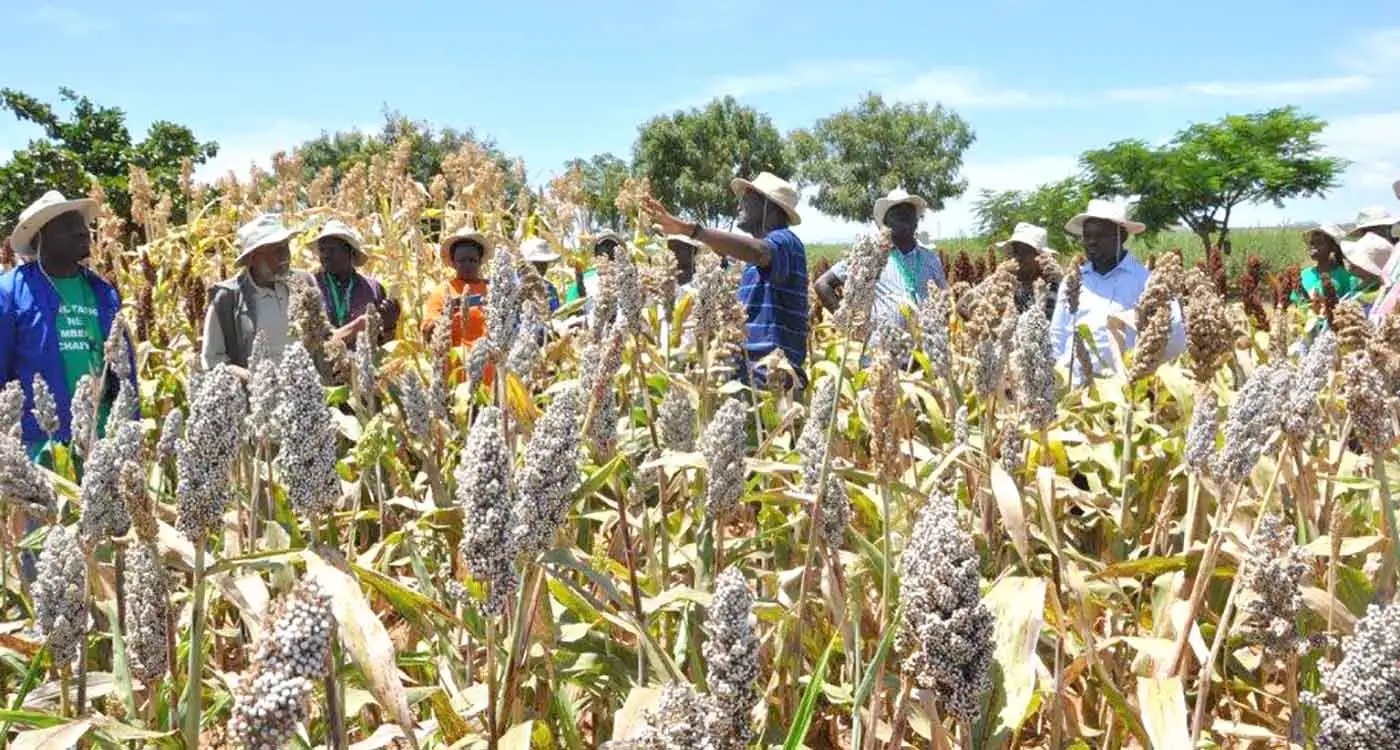Genetic resources
Because error has a price
 Environmental health and biodiversity
Environmental health and biodiversity
Incorrect identification of crop varieties is widespread among farmers, according to a new CIMMYT study.
Cereal seed systems
 Capacity development
Capacity development
Discover how CIMMYT scientists support getting new improved seeds to farmers fields, faster.
Afghan wheat landrace shows promise for rust resistance
 Environmental health and biodiversity
Environmental health and biodiversity
Genetic analysis of the Afghan wheat landrace KU3067 reveals resistance to leaf rust and stripe rust, which can be used to develop further disease-resistant wheat varieties.
Pilot of new wheat variety improves yield for farmers in Ethiopia
 Capacity development
Capacity development
Farmers in Ethiopia’s lowlands trialed usage of the Kingbird wheat variety, with promising results for improved yield and increased income.
Fighting back against Ug99 wheat stem rust
 Environmental health and biodiversity
Environmental health and biodiversity
Source: Corteva (10 Aug 2022)
Genetic analysis plays a vital role in tackling crop diseases such as wheat stem rust, which can be financially devastating for farmers.
Essential actions to mitigate the food crisis, stabilize supply and transition to greater agrifood system resilience
 Nutrition, health and food security
Nutrition, health and food security
Experts propose short-, medium- and long-term practical actions to respond to the looming global food crisis catalyzed by the Russia-Ukraine war.
China calls on G20 to support CGIAR to boost global food security
 Climate adaptation and mitigation
Climate adaptation and mitigation
The G20 Foreign Ministers’ meeting held on July 7-8 in Bali saw Chinese State Councillor and Foreign Minister, Wang Yi, highlight support for CGIAR as part of a proposed cooperation initiative to boost global food security.
Untapped potential of genome-edited crops explored in new research
 Nutrition, health and food security
Nutrition, health and food security
Analysis of evidence by scientists of the International Maize and Wheat Improvement Center (CIMMYT) and CGIAR concludes that the scientific risks of genome editing are similar to those of traditional breeding.
China to build international agricultural breeding center in Hainan
 Climate adaptation and mitigation
Climate adaptation and mitigation
Source: Xinhua News (14 Jul 2022)
A letter of cooperation has been signed in China to signal the start of a new partnership aiming to meet the global challenge of climate change and ensure food security.
CRISPR, 10 years on: Learning to rewrite the code of life
 Innovations
Innovations
Source: The New York Times (27 Jun 2022)
Kevin Pixley, Director Genetic Resources Program and Deputy Director General Research – Breeding & Genetics (a.i.) at CIMMYT, quoted in a New York Times article about genome-editing technologies.
CIMMYT and CGIAR senior leaders share vision ahead
 Nutrition, health and food security
Nutrition, health and food security
During two-day visit, CGIAR managing director and regional director deepen their understanding of CIMMYT’s research and impact.
The race against time to breed a wheat to survive the climate crisis
 Climate adaptation and mitigation
Climate adaptation and mitigation
Source: The Guardian (12 Jun 2022)
CIMMYT scientists are using the biodiversity of forgotten wheat varieties from across the world to find those with heat- and drought-tolerant traits.
Researchers in East Africa add the Enterprise Breeding System to their work tools
 Capacity development
Capacity development
Scientists, research technicians and data managers learn functionalities and applications of EBS during in-person training in Nairobi.
NASDA representatives visit CIMMYT
 Nutrition, health and food security
Nutrition, health and food security
Crop science and farming research attracts interest of National Association of State Departments of Agriculture of the United States.
CIMMYT to lead CGIAR varietal improvement and seed delivery project in Africa
 Innovations
Innovations
The AVISA project aims to improve the health and livelihoods of millions by increasing the productivity, profitability, resilience and marketability of nutritious grain, legumes and cereal crops.
